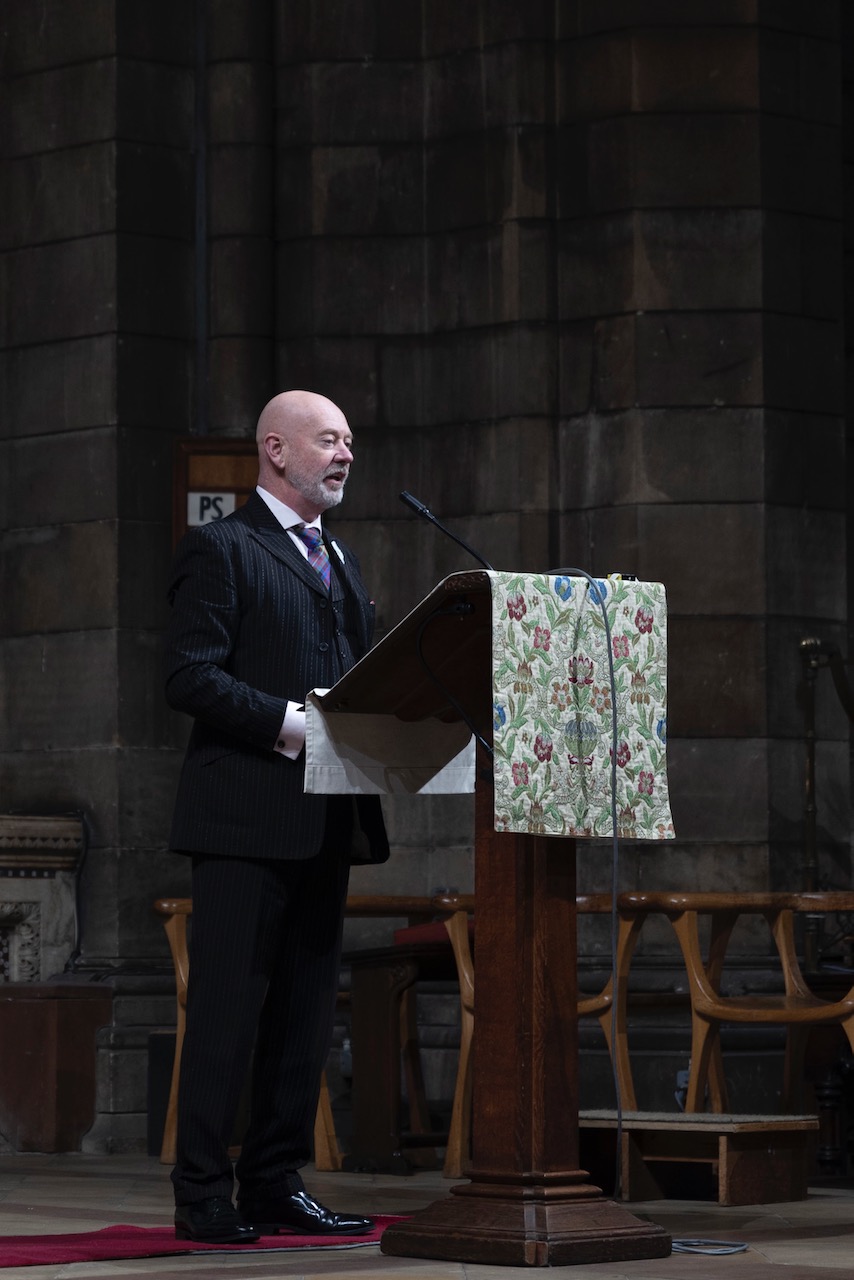I was honoured to be invited to speak at a unique event called ‘United For Peace: Edinburgh Communities United Against Hate’ at St Mary’s Episcopal Cathedral on Monday 13th November.

Created by the Edinburgh Interfaith Association in partnership with The Oxford Foundation it was a first for Scotland bringing together members and leaders of the city’s different faith and belief groups in a celebration of unity to call for peace.

Attended by the Lord Provost of Edinburgh, members of the Scottish Government and representatives of Police Scotland, it was a moving celebration of diversity, with contributions from many people of all faiths and none. Here’s what I said.

Salaam; Shalom. Arabic and Hebrew both use the same word in greeting, and it means peace, so salaam, and shalom to you all. The word for peace is almost the same in Russian and Ukrainian too; a tiny difference in pronunciation; a tragic difference for humanity.

We don’t seem to have learned much since the end of “the war to end all wars” which we commemorated yesterday, but in truth the struggle between the desire for vengeance and the desire for justice is much, much older.

Almost 3,000 years ago, Aeschylus wrote a play about how to transform a society rooted in vengeance into one shaped by justice. It’s called the Oresteia, and it starts after the Trojan war, when Agamemnon returns in triumph, only to be murdered by his wife for having sacrificed their daughter to placate the gods on the eve of the war.

To avenge his father, Agamemnon’s son kills his mother, before fleeing to Athens where the goddess of wisdom convenes a jury to try him. The verdict is split, so Aeschylus asks, what is Athena to do?

Agamemnon, Clytemnestra and Orestes all had reason for what they did, but reason is not enough. As GK Chesterton observed, “the madman is not the man who has lost his reason, the madman is the man who has lost everything except his reason.”

Revenge is a reason, but it is the opposite of peace and justice. The Israelis and the Palestinians, the Russians and the Ukrainians all have reasons for what they’re doing, but reason is not what we need right now.

But back to the Oresteia; what did Athena do? She forgave Orestes. Aeschylus recognised that civilisation depends on our ability to overcome our desire for revenge, and learn to forgive.

There is a saying, “to err is human, to forgive divine,” but I disagree. Forgiveness is a profoundly human quality; it takes great courage, and it is only by recognising our common humanity that we can break the endless cycle of violence.

What we need now is compassion. Compassion is far more important than reason, and never more so than now. You may remember that when the 85-year-old Israeli peace activist Yocheved Lifshitz was released from the captivity of Hamas the other week, she gripped the hand of one of her hooded captors and said, “Shalom”.

That display of forgiveness was a display of all that is best in the human spirit. It took great courage, and it gave me hope, not least because it was an expression of a fundamental humanist belief that there are more things that unite humanity than divide it, and the greatest of them is love.

Mir, mir. Salaam, Shalom. Peace be upon you.

Let us work for peace – together!

0 Comments Leave a comment